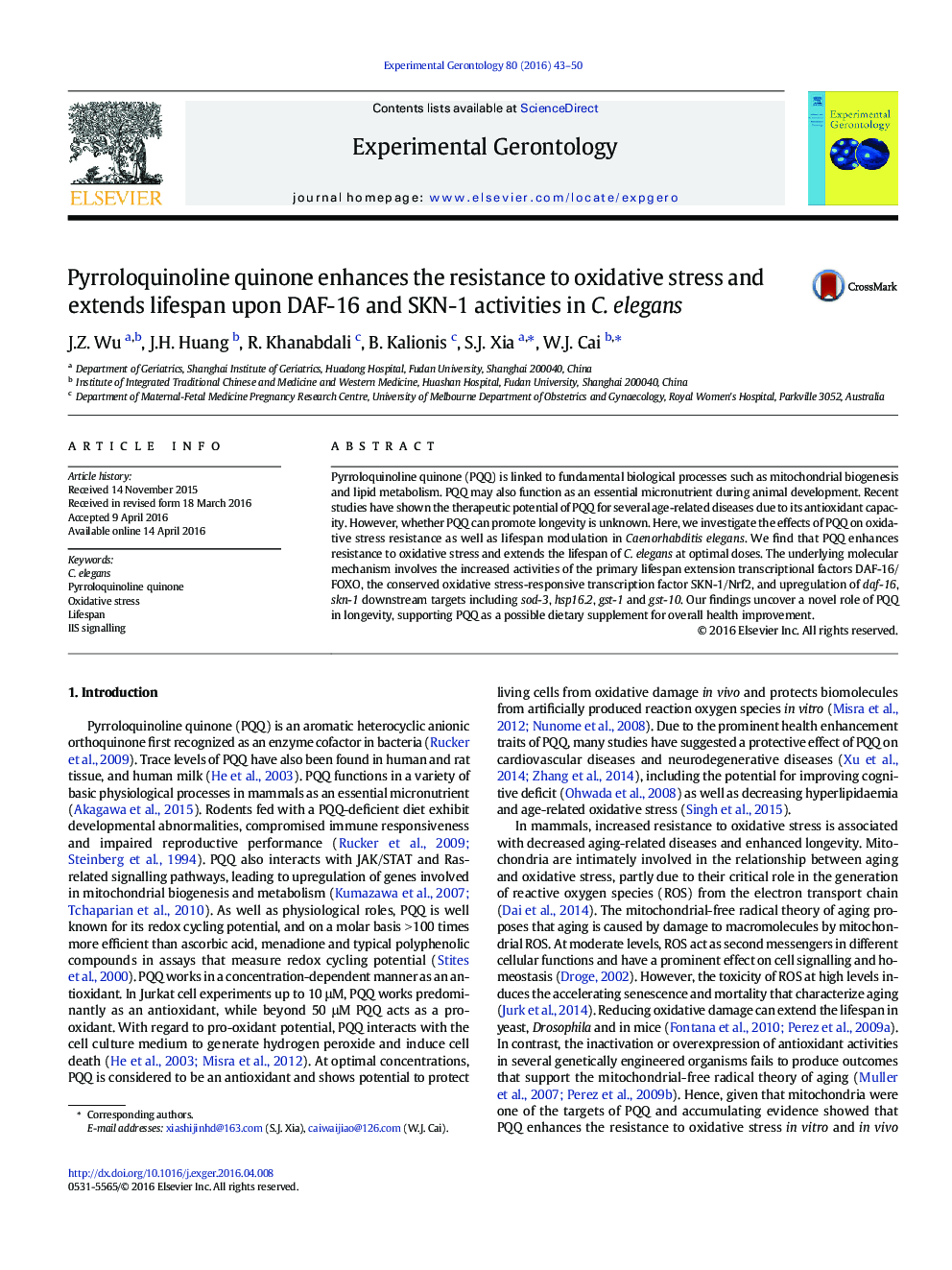| Article ID | Journal | Published Year | Pages | File Type |
|---|---|---|---|---|
| 1906111 | Experimental Gerontology | 2016 | 8 Pages |
•Pyrroloquinoline quinone (PQQ) enhances resistance to oxidative stress and extends the lifespan of C. elegans.•Low concentrations of PQQ could decrease the production of reactive oxygen species (ROS), while high concentrations fail to.•The mechanism concerning the lifespan extension may be dependent on increased activities of DAF-16/FOXO and SKN-1/Nrf2.
Pyrroloquinoline quinone (PQQ) is linked to fundamental biological processes such as mitochondrial biogenesis and lipid metabolism. PQQ may also function as an essential micronutrient during animal development. Recent studies have shown the therapeutic potential of PQQ for several age-related diseases due to its antioxidant capacity. However, whether PQQ can promote longevity is unknown. Here, we investigate the effects of PQQ on oxidative stress resistance as well as lifespan modulation in Caenorhabditis elegans. We find that PQQ enhances resistance to oxidative stress and extends the lifespan of C. elegans at optimal doses. The underlying molecular mechanism involves the increased activities of the primary lifespan extension transcriptional factors DAF-16/FOXO, the conserved oxidative stress-responsive transcription factor SKN-1/Nrf2, and upregulation of daf-16, skn-1 downstream targets including sod-3, hsp16.2, gst-1 and gst-10. Our findings uncover a novel role of PQQ in longevity, supporting PQQ as a possible dietary supplement for overall health improvement.
